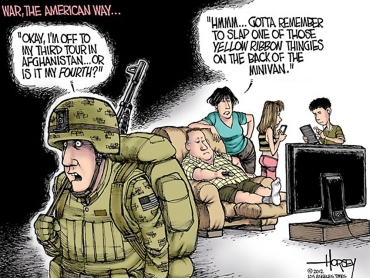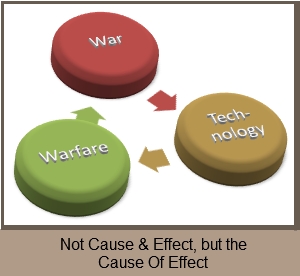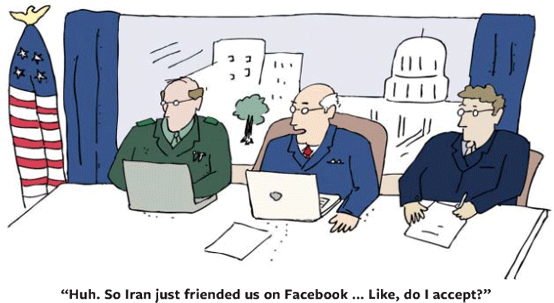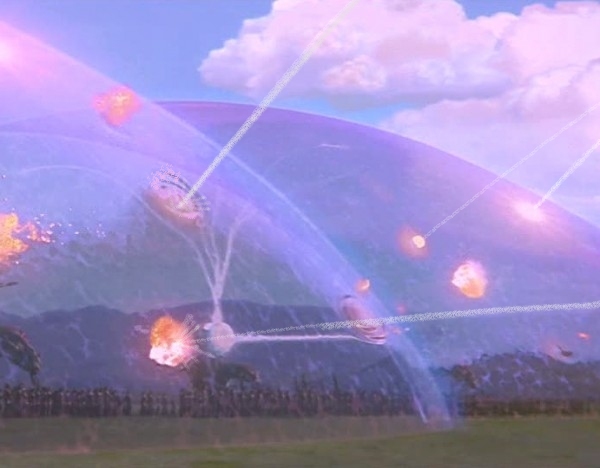
Three
months ago on our April Home Page we took our government to
task for not giving us Americans enough information before a
war begins to allow us to assess the value of an upcoming
war to our nation’s needs. What we were trying to express is
our viewpoint that as things stand now most Americans are
wholly unable to make an accurate assessment and understand
the implications of an upcoming war sufficiently to fully
understand what kind of commitment our country must make to
that war if we are to win it. What spurred us to look into
this area is the fact that the American public seems to
consistently tire of each war we get into long before it is
able to be brought to a proper end, with the result that our
government and military leaders find themselves rushing to
end a war and “get the boys home” before the public starts
taking to the streets with pitchforks. Obviously, this
sloppy method of ending the wars we fight contributes
greatly to another problem we face: messy endings that leave
the countries we fight in as basket cases stumbling along
for the next 50 years as wards of society, or worse, as a
continuing nemesis to our own country.
What we said the American people needed to know if
they were going to stand behind a new war effort for
“as long as it takes” was what the government and
military leaders who would manage the war thought
about how long the war would last, how much it would
cost in terms of our nation’s treasure, how long our
commitment as a nation must be for, what the final
stage of winding down the war would look like, how
long the final stage would last, what the final
stage's cost would be, and what the world would look
like when all of the stages of the war were over and
done with and the world was at peace again.

Key
among these is the latter point as it applies to
any hypothetical new country we might be thinking of
warring against. That is, what will
that
country look like when our happy warriors come home
and we are no longer spending any money to support
it? Will it be stable and prosperous, enjoying a new
form of participatory government, or will it be an
oozing, war torn abscess of a nation hanging on the
rump of the world for the next 50 years… as North
Korea is and it is increasingly looking like Iraq
and Afghanistan may be too?
As we said then, if we as Americans were to be so lucky as
to actually be briefed on these kinds of things before a new
war gets underway, and also lucky enough to actually have a
President and Congress that has enough respect for the
Constitution to declare a war instead of just segueing into
it with the same insouciance that they apply to forming a
budget, then we might be able to get into one of these wars,
win it, and leave behind a successful, free, peaceful,
prospering country, instead of the kind of mess we see the
world being dotted with today.
Moving from this point to one that
runs parallel to it, in this month’s article we are
concerned with how technology impacts these hot little wars.
That is, what impact does technology have on the outcome of
the kind of wars we are increasingly taking on today? If the
American public is ever to know what to expect when America
next goes to war, it needs to know more than just how many
soldiers and how much money it will cost. It also needs to
know how a war will shape up as it gets underway. And to
know the answer to that, one must know of the impact today’s
technology has on a war's effort, because in the end it is
technology that shapes warfare.
 Why does the public have to know how
our technology... more specifically how today's emerging
technologies... affect warfare? Because the depth and
breadth of pain the American public feels in any new war
effort will be in direct proportion to the ability of the
war fighters, on both sides, to leverage the technology they
have access to to their benefit. Simply put: no pain, and
the American public will let the military fight a war
forever, until everyone is satisfied that it has been won
the way it should be; too much pain in too short a time, and
the American public will demand that the war be put to an
end quickly and everyone brought home, regardless of whether
we are winning or not. And just to be clear, in this case
pain does not just mean the loss of America’s sons and
daughters in combat. It also means the kind of damage to
America’s national pride and image that a poorly conducted
war effort can bring (think: Abu Ghraib).
Why does the public have to know how
our technology... more specifically how today's emerging
technologies... affect warfare? Because the depth and
breadth of pain the American public feels in any new war
effort will be in direct proportion to the ability of the
war fighters, on both sides, to leverage the technology they
have access to to their benefit. Simply put: no pain, and
the American public will let the military fight a war
forever, until everyone is satisfied that it has been won
the way it should be; too much pain in too short a time, and
the American public will demand that the war be put to an
end quickly and everyone brought home, regardless of whether
we are winning or not. And just to be clear, in this case
pain does not just mean the loss of America’s sons and
daughters in combat. It also means the kind of damage to
America’s national pride and image that a poorly conducted
war effort can bring (think: Abu Ghraib).
Continuing with our thinking: in our
view, more than any other force, the availability or lack of
availability of technology has a dramatic impact on how a
war is fought, who comes out on top, how long a war must go
on before someone does come out on top, and how effective
post-war governing leaders will be in helping their
country return to peace. One need only look at the impact of
drones on Afghanistan to see what we mean re. technology
shaping war.
When
Afghanistan first got underway effective drone technology
was in its infancy, with many military leaders seeing it
more as a defocusing video side game than a useful piece of
armament to have in their basket of tricks. Now, 11 years
later, drones have become more relevant to the war effort
than ISAF itself. The same might be said for Facebook,
YouTube, Twitter and the myriad other social network
platforms that let the enemy get their word out in ways that
Ho Chi Min could have only dreamed of. Think back to the
viral way in which the Abu Ghraib photos spread around the
world in less than an hour, or the burning of the Korans in
Afghanistan led to over 3 million tweets in 24 hours, and
you will see our point.
Technology has a great impact on warfare, even non kinetic
technology.
[1]
Technology, more than any other
outside force, shapes warfare. In trying to figure out how
effective America will be in fighting any war then, one must
take into effect how well we use technology … both kinetic
and non-kinetic… to fight a war, as well as how well our
enemy uses it.
Bear in mind here that when speaking
of technology we are not talking of the old traditional
forms of technology such as those used for communication
interception and the like. Those forms have been around
since the very first recorded war ever fought—between Sumer
(in modern Iraq) and Elam (a region that is now part of
Iran) in 2700 BC. Instead we are talking about emerging
technologies, of the kind mentioned earlier. These emerging
technologies… like those used in drones, or those used by
Bradley Manning to leak military secrets to WikiLeaks, are
what we are speaking of. Emerging technologies… the kind
that not only shape how a war is fought, but are also shaped
by it.
Note again the last part of the
previous sentence. Strange though it may seem, the unique
thing about technology is that while it has a dramatic
impact on a warfare, conversely it is war itself
that shapes technology. One more time: war itself shapes
technology, not warfare. Clarifying this point
then; among the three—technology, warfare and
war—technology shapes warfare but not war, while on the
other hand war shapes technology but not warfare.
 If this is true, then we can also
say that military technology is not deterministic. In other
words, just because a particular military technology was
instrumental in winning a war in the past, you can’t assume
that the inevitable consequence of an improvement to this
antecedent form of technology will cause the state of
affairs today to result in another win. Military technology
in and of itself is not deterministic. Rather, it opens
doors as to what can be. Because of this, emerging
technologies that are based on successful antecedents will
not open any more doors for the managers
of war than a form of technology that has not yet proven
itself useful or successful. Regardless of a technology's
past history and evolution, there is no way to determine
whether it will intrinsically spawn a successful form of
usage when applied in a wartime environment. What does
determine the success of a technology is how many of the
doors that technology opens man decides to walk through.
Thus, the more doors a technology opens to possible means
and methods of use, the greater the availability
of and larger number of paths there will be to wartime success.
If this is true, then we can also
say that military technology is not deterministic. In other
words, just because a particular military technology was
instrumental in winning a war in the past, you can’t assume
that the inevitable consequence of an improvement to this
antecedent form of technology will cause the state of
affairs today to result in another win. Military technology
in and of itself is not deterministic. Rather, it opens
doors as to what can be. Because of this, emerging
technologies that are based on successful antecedents will
not open any more doors for the managers
of war than a form of technology that has not yet proven
itself useful or successful. Regardless of a technology's
past history and evolution, there is no way to determine
whether it will intrinsically spawn a successful form of
usage when applied in a wartime environment. What does
determine the success of a technology is how many of the
doors that technology opens man decides to walk through.
Thus, the more doors a technology opens to possible means
and methods of use, the greater the availability
of and larger number of paths there will be to wartime success.
The relevance of all of this to our
discussion of the impact of technology on war is that not
knowing where emerging technologies have their greatest
impact can be dangerous to a war leader; dangerous to the
point of making it possible to lose a war if one is not
careful.
One can see a bit of this happening
in the use of drones in Afghanistan. Clearly, military
leaders now know that a) the plan is that everyone be out of
Afghanistan and home by 2014, b) with only two years to go,
the last thing the American public will stomach is a large
loss of life at this stage of the war, so if the desire is
to wrap it up quickly you might as well scratch combat
operations off the list, c) in a couple of years there won’t
be anyone left in Afghanistan to fight this war with, and d)
in spite of all of this, and regardless of whether we are
there or not, the war will go on for at least another 7 – 10
years anyway, and likely result in something future
historians will classify as another “Vietnam style defeat”
for America.
With this in mind, how can anyone
blame today’s military leaders from turning to drones as
their surrogate fighting force? After all, pretty soon it'll
be all they have left.
This latter point aside, whether they are blamed
or not, unfortunately, drones—or any other form or
combination of emerging technologies for that matter—won’t
help our commanders win the war in Afghanistan. Depending on
technology to solve what couldn’t be solved with boots on
the ground creates in a leader a false chimera not worthy of
his carrying the title Combat Commander.
Why? Because technology shapes
warfare, not war, and especially not its outcome. War, on
the other hand, as we said above, shapes technology.
The important point here is to
distinguish between war and warfare, and the impact
technology has on both of these.
That technology shapes warfare not war is easier to see
today than it was back during WWII, and certainly much
easier than it was during WWI.
Like the air we breathe and the water we drink, it is
unfortunate but true that for as long as Homo erectus has
been around, so hasn’t war. It is timeless and universal.
The fact that our species has used it as a tool to impact
society’s development for over 1.6 million years, since we
first started walking upright, makes one wonder if all of
the cries for peace coming from the liberal left isn’t just
one big waste of time? Does anyone really believe that the
mere act of wanting a world at peace is going to bring one?
Does anyone really think that if one element of society
gives up war, all the others will too? Haven’t the wars
stemming from religious intolerance made the case that man
has found a way to usurp even the most beautiful part of
man’s thoughts—belief in a good and peaceful God—such that
rather than religion being a cause for good, it now has
become a cause for war? Let’s face it, war is here to stay.
If so, then what of technology’s impact on it?
Ahhhh… we got you. You see, that’s a trick question. It’s a
trick question because if one looks at the graphic below,
one will see that technology has no impact on war. Instead,
it’s impact is on warfare.
 What’s
the difference, you ask? Consider this: our current
President is busy trying to reduce America’s stockpile of
nuclear weapons. He’s also busy shelving the research Reagan
started into ways and means of shooting down ICBMs and other
offense postured missiles (especially during their boost
stage) and satellites. If our premise here that war impacts
technology, and technology impacts warfare, and warfare
impacts war is right, then doing away with nuclear weapons
or missile defense shields isn’t going to do a darn thing
when it comes to stopping or preventing war. All it is going
to do is impact our ability to fight it when it inevitably
comes.
What’s
the difference, you ask? Consider this: our current
President is busy trying to reduce America’s stockpile of
nuclear weapons. He’s also busy shelving the research Reagan
started into ways and means of shooting down ICBMs and other
offense postured missiles (especially during their boost
stage) and satellites. If our premise here that war impacts
technology, and technology impacts warfare, and warfare
impacts war is right, then doing away with nuclear weapons
or missile defense shields isn’t going to do a darn thing
when it comes to stopping or preventing war. All it is going
to do is impact our ability to fight it when it inevitably
comes.
Look at the graphic and you can see that being without nukes
or missile defense systems won’t deter an aggressor from
attacking… to the contrary, it might even incent one to
attack sooner. But it most definitely will impact how we
fight any such war that an aggressor might start. A weak
military posture invites strong actions against us by those
who oppose us. And if we toss our best technology into the
scrap heap of history, all this will do is multiply the
strong response by those who oppose us by a factor of five
or more. The increase in the strength of their response will
be exponential folks, not linear.
To be clear, by warfare we mean the conduct of war. In other
words, the broil and scrimmage of arms in the field, or the
deployment and management of armed forces in the exercise of
conflict. Warfare entails what we learned of in OCS as
operations, whether or not it involves engaging opposing
forces directly, or via some other organized form of
violence, kinetic, or non-kinetic action.
War on the other hand is little more than a condition. It is
the condition of circumstance that a state or government
finds itself in. While warfare (i.e. the physical activity
conducted by armed forces in the context of war) can
determine the final condition of circumstance that a
government may be saddled with when a war is over, the fact
that a country or people are in a state of war cannot
determine the mode of warfare that is used to impact the
final result of the conflict. Only technology can do that.
So, in the end, if a country wants to have control over the
final state it finds itself in when a war ends, then it has
to develop a credible means to conduct warfare. And if the
desire is to be able to use warfare in a credible manner to
impact the end state of a war, then that same country needs
to master the use of technology to underwrite its mode of
warfare… emerging technology in particular.
By now our astute readers will ask, What about diplomacy?
Can’t it be used to win a war or affect its outcome? Why
only warfare?
 Clearly,
the answer is yes, diplomacy can impact the final state of a
war. However, unlike von Clausewitz, we would not say that
“war is an expression of politics by another means,” instead
we would say that politics (i.e. diplomacy) is an expression
of war by another means. In other words, diplomacy, or what
von Clausewitz calls politics, is in reality just another
method of warfare. Our point then being that warfare is the
overarching entity that determines society’s advance, not
politics.
Clearly,
the answer is yes, diplomacy can impact the final state of a
war. However, unlike von Clausewitz, we would not say that
“war is an expression of politics by another means,” instead
we would say that politics (i.e. diplomacy) is an expression
of war by another means. In other words, diplomacy, or what
von Clausewitz calls politics, is in reality just another
method of warfare. Our point then being that warfare is the
overarching entity that determines society’s advance, not
politics.
We say this because in our view the methods of political
control over people that have come and gone through the ages
have had less of an impact on society’s advancement than
warfare has. Everything from dictatorships, monarchies,
empires, and strange things like the old Hanseatic League
through to internal revolutions, anarchy, democracy,
communism, socialism, Marxism, Leninism, Mao Tse Tung's
thought, the teachings of Che Guevera, and much, much more
has been tried. And one by one they have all fallen by the
wayside or failed at giving people what they want. The only
thing that has remained consistent throughout time has been
the use of warfare to gain for a society that which it could
not gain by political means. Unlike politics, warfare has
proven its enduring ability to either protect or restore to
a people the form of society that they wish to live in.
Don’t mistake what we are saying here. We are not saying
that war is good, only that if one looks again at the "Cause
Of Effect" graphic above one will easily see that diplomacy,
politics, and the state a country or society exists in are
all impacted by technology.
This moves us to our next point: understanding what the
impact of technology is on warfare.
Since wording is important in our making our case, let us
say with specificity what we mean by the impact of
technology on warfare. Here we mean that technology defines,
rules, restricts, and demarcates how a war is fought. It
presages how warfare will take place, and once warfare
begins it (i.e. technology) becomes the instrument of
warfare.
If forced to distill all of this into one word, the greatest
impact technology has on warfare is that it alters it.
Referring back to our discussion above about politics and
diplomacy, one can see that if diplomacy is just another
form of technology, then as it evolves it too can impact how
a war is fought. That is, thinking of a new form of
diplomacy as merely an emerging form of an existing
technology, one can see (and even hope) that perhaps it
might be able to take the rough edges off of the conduct of
a given war… perhaps even to the point of resolving the war
in an end state that the people of both sides can approve
of. But, if this new “diplomatic technology” proves unable
to win the war, then the combatants had better hope that
their “other technologies” are up to the task… or else one
side or the other will find itself in the position of the
Third Reich at the end of WWII.
All in all then, technology both provides and is the chief
source of military advancement, i.e. the advancement of
warfare. And yes, we include diplomacy and politics within
the term “military.” Technology impels changes in warfare
more than any other factor, but it does not determine
warfare. Underneath it all, warfare is impacted and
greatly enabled by technology, but without technology
warfare will continue to exist. The reason is that what we
commonly refer to as the “principles of war” exist
regardless of whether technology evolves or doesn’t… or for
that matter even exists, and in the end it’s the principles
of war that determine warfare. What do we mean by the
principles of war?
In our case the term principles of war refers to the body of
knowledge that a commander needs to know to conduct warfare.
Strategy and tactics are included here, as are those
elements that comprise a commander’s understanding of how to
wage warfare. Among these are included the concepts of
friction, the fog of war, chance, violence, intelligence,
use of terrain, the element of surprise, maneuver, maximum
advantage, planning, critical mass, economy of force,
intelligence and communication security, concentration of
force, overwhelming force, convergent attacks, command and
control, unity of command, and much, much more. From this we
can see that technology defines warfare, but it does not
determine how it is fought. It presides in warfare, but it
does not rule warfare.
So what does rule warfare and determine the outcome of war?
For that answer, we are afraid you will have to come back
next month when we continue our discussion with the Effect
of Technology on Human Agency. Clearly, from this little
hint you can see that in our view Human Agency, brought to
bear on warfare, determines both the sate of and outcome of
war. How well it does this is in great measure determined by
how well Human Agency utilizes the emerging technologies at
its disposal to modify and implement a more effective mode
of warfare
Next Month: Human Agency And Technology Create Winning Warfare
- - - Epilogue - - -

As Raphael demonstrated in 1509, Causal Power is intrinsic to “Prime Mover”
status. In the world we live in today, having Causal Power is an ontological
feature of being human. Restating this, one could say that in many cases
human beings hold Causal Power and therefore are able to exercise it in ways
able to change the existing world. One such way is by acting on technology
to become its Prime Mover. Much as early believers in 1509 thought God did
when setting the universe first in place and then in motion, people today
use Human Agency as the Prime Mover force to leverage technology to alter
the heavens. Not by filling them with stars, but with society-altering
armament.
Human Agency, acting on technology, allows the creation of new forms of
warfare, which have the capability of affecting and altering the end
condition of war.
Adding to this theory of critical realism is the opposing axiom that
regardless of the number of society altering arms one set of Prime Mover's
can place in the heavens, other Prime Movers will be able to leverage
technology to defeat their utility... if, that is, they understand that
technology shapes warfare, and they have used every mode of emerging
technology that they can get their hands on to open as many doors to Human
Agency as possible.
With this in mind, it makes one wonder: how much wisdom is there in reducing
the size of a nation's nuclear arsenal, or shuttering its missile defense
shield research, merely to make the rest of the world feel better?

Click to read the next two articles:
Article I
Article III
Have a comment on this article? Send it
to us. If you are a member of the Association we will
gladly publish it.
If you are not, well, it only costs
$30.00 a year to become a member and have your views heard...
and because
we are a fully compliant non-profit organization, your payment is tax
deductable.

